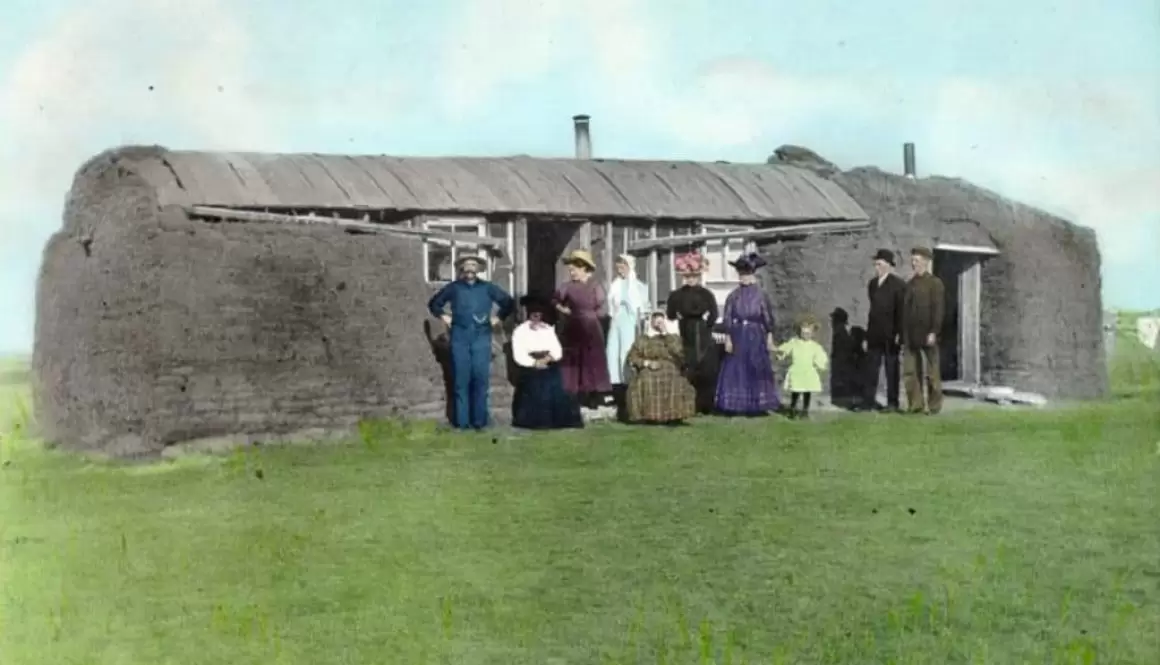The Family of Marion Thomson
The Family of Marion Thomson
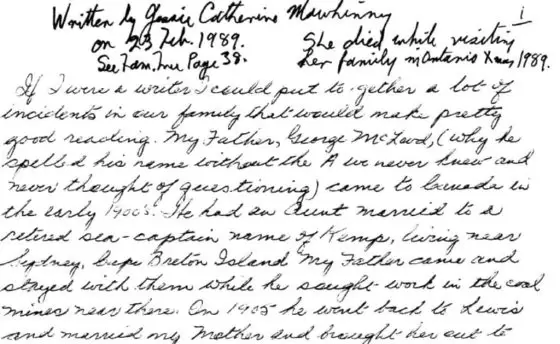
Marion Thomson’s Family
Jessie Catherine Mawhinney wrote to my father on 23rd February 1989 about the emigration from the Isle of Lewis, Scotland to Canada, of her own parents in the early years of the twentieth century.
Her mother, Marion Mary, was the eldest child of James and Isabella Thomson, and the grand daughter of Alexander Thomson and Christina MacInnes. She was born in 1882, the first white child born in the Northern Territory of Canada.
She returned to the Isle of Lewis with her parents in 1889. In 1905 she met a George McLeod who had come home from Nova Scotia. They married in a ceremony in the market place with five other couples before returning to Nova Scotia. George found employment in the coal mines. Below is Jessie’s account, written only a few months before she died in 1989.
Nova Scotia Coal Mines
If I were a writer I could put together a lot of incidents in our family that would make pretty good reading. My father, George McLeod (why he spelt his name without the “a” we never knew and never thought of questioning), came to Canada in the early 1900s. He had an aunt married to a retired sea captain name of Kemp, living near Sydney, Cape Breton Island.
My father came and stayed with them while he sought work in the coal mines near there. In 1905 he went back to Lewis and married my mother and brought her out to Auntie Kemp’s until he could build a house, which he finally did, a little shack in the woods which my mother swore was two feet wider at one end than the other.
Anyway, their three oldest children were born there. Their close neighbours were a white lady married to a negro who also worked in the mines and my mother said he used to pick up one of her hens on his way home from work occasionally.
But the women were very good friends and Mrs. Mickey taught my mother a lot of things about housekeeping and sewing and making ends meet on my father’s salary. He received $1.50 per day and these were long, long days underground. Finally a group of the miners decided to go on strike for better wages and working conditions. No unions in those days. They stuck it out for a year and then, through desperation, went back only to be assigned worse jobs and no change in pay.
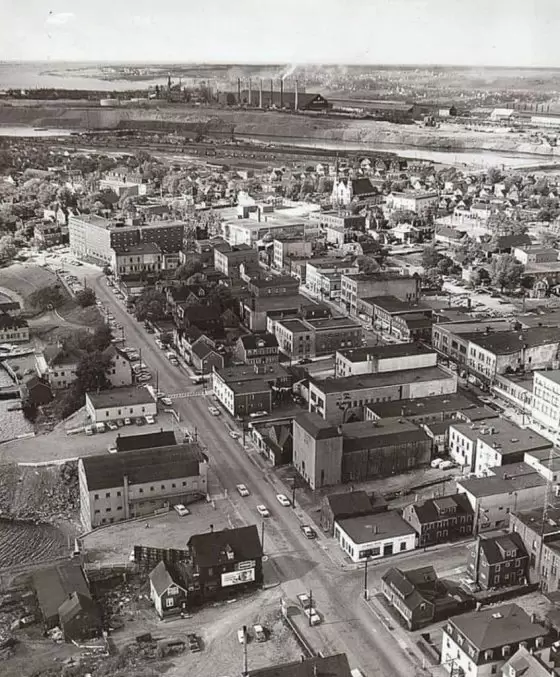
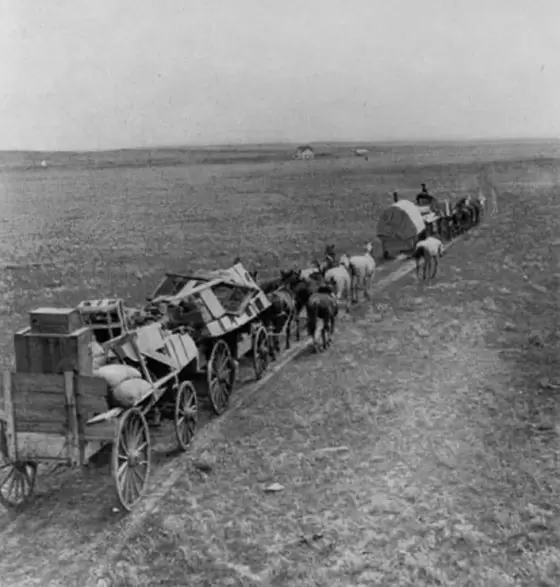
Saskatchewan
By 1911 the Government opened a large territory of land in Saskatchewan. 320 acres of open prairie land could be had for the sum of $5.00 with provisions that a small house be built, a few acres broken each year and a minimum of three months living on the land each year for three years. After that they could apply for another 350 acres for the same price.
This looked like a fantastic deal to my parents so with high hopes they travelled on an immigrant train to the west. They stopped over in Winnipeg and were warmly received by friends from Lewis and felt much happier about the journey ahead.
My father settled the family in a small house in Gull Lake, then quite a thriving little town, and went to see what he could do about building a shack on his new homestead. He took a job in the local livery stable. There were two such in the town and they did a lively business.
No cars those days! He was able to borrow horses and a wagon and hauled supplies out to the farm. There wasn’t even a road out there so it was a long drive, ten miles, over rough places. He finally put up a small shack of lumber and covered on the outside with heavy, black tar paper which was attached to the wall with flat round metal discs and a sharp nail. Some tedious job getting that lot done.
Anyway, came the day to move the family out for their three months stay. With the three young ones, my sister Annabelle wasn’t quite a year old and my mother was pregnant with Johnnie. They didn’t have much to take out, just the bare necessities and it was a very windy day.
Homestead
Through the years we came to accept the fact the wind blew an awful lot and not a gentle breeze either. About the last mile of their journey they noticed various sizes of pieces of black tar paper blowing toward them. Mother couldn’t imagine where they would come from but Dad had a sinking feeling he had seen them before and sure enough when they reached “Home on the Range” the little shack was minus a covering here and there.
Must mention they brought a cow along which was tied to the end of the shack and in the day time was tethered out on a long rope to feed on the long prairie grass. Dad had dug a well near the shack and the water was lovely. My mother used to hang a milk can on a rope down into the well to keep it cool. One day the snap that held the rope on the can came off and after a great deal of persuasion, my brother who was about six years old then, was lowered into the well to rescue the milk.
My father took the borrowed horses and wagon back to town and from then on until the three months were up he worked at his job in town and walked to the homestead every Saturday night with the weeks supply of groceries. Back the ten miles on Sunday night. My mother must have been terribly lonely there though I don’t remember that.
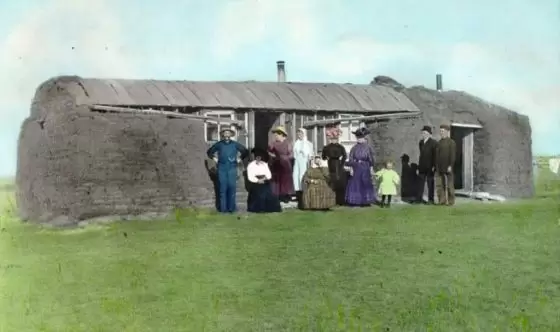
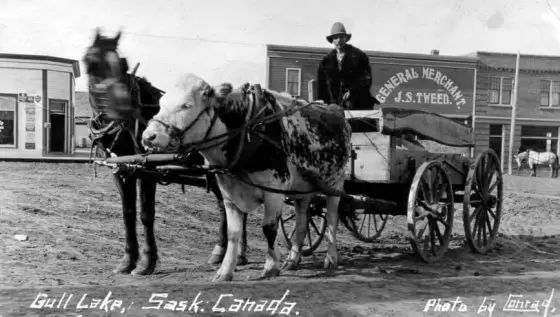
Aunt Isabel
The next summer my Aunt Isabel came to be with her and we young ones just loved her as she was just sixteen and a great one for playing games. There was a large ranch just across from our place which was fenced and a big gate close by which we, children, would swing on if there were no cowboys around to catch us.
They would be riding around to see if the fence was down and would come in once in awhile for a chat and a cup of tea. Eventually my father made a little pen for hens from a cave out in the side of the hills and sods from the newly plowed ground. So we had eggs and milk but there never was time enough or tools to have a garden until they came out to live all year round and have a proper house and other buildings.
Often there were land agents from town driving protective buyers out to look over the land still open for sale. One very rainy night two men stopped at the shack asking if they could come in because of the downpour. My mother was pretty apprehensive about letting them in but the nearest neighbour was two miles away and she couldn’t refuse.
They tied the horses in the shelter of the shack and came in to sleep on the floor until morning. My mother kept the axe handy by her bed just in case! In time these two men became good friends of ours and had many a good laugh about that night.
Gull Lake Policeman
It was six years later that the farm became a permanent home. In the meantime my father had several jobs and had acquired a nice house in town. The last two years he spent as town policeman.
One weekend my mother took the two youngest and went to visit another Lewis lady on a ranch twelve miles from town. My oldest brother and I were left to keep house while Dad was at work. We were pretty surprised on the Saturday evening when a strange man showed up at the door. He said Dad had sent him and he had some groceries and said he would have supper. He persuaded us to have some fun with Dad and we were to say when he came home that the man never arrived.
It turned out he was in jail for some minor thing and Dad had felt sorry for him so decided he could be out for the evening, likely knew him pretty well. Anyway, when we heard Dad at the door the man hid behind the big kitchen stove and when Dad enquired if he came we weren’t for telling the truth.
Dad was pretty worried for a while until the man emerged laughing. I suppose we got a good scolding and Dad would be relieved he hadn’t “flown the coop”.
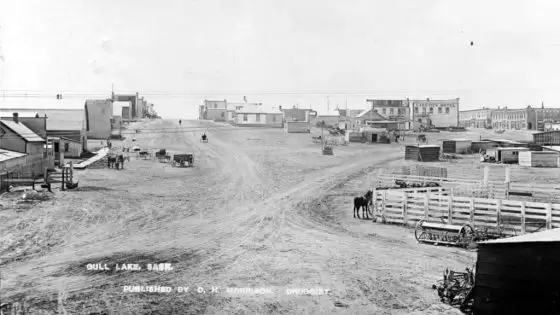
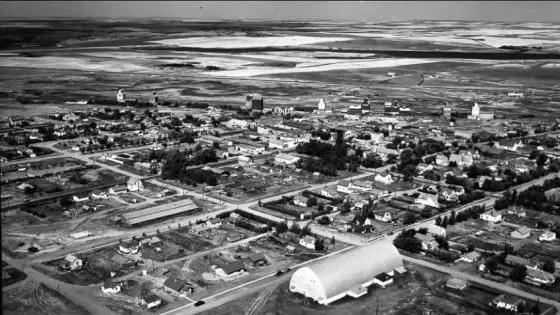
Schooldays
The folks sold the house in town to buy horses and what machinery they could get by with. More would need to come later. There were four new work horses to name and I still remember their names. Also a team of drivers which we named Mutt and Jeff.
There were good years and bad years and we were fortunate to be a fairly healthy bunch. School was 1.5 miles away and we walked and took our lunch. School was only in the summer months in the first few years. Later on the Government paid a grant if the school was kept open the full term.
The eight grades were taught in one room by one teacher and I will say the children did very well though most of us couldn’t afford to go on to High School in town. I don’t remember that anyone particularly famous went from there into the world but we certainly had many happy days there.
